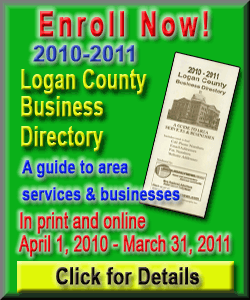| ||||||||||
| ||||||||||
Its U.S. charity doles out millions each year, sometimes in photo opportunities with politicians. It gave $5.6 million to charitable causes from mid-2007 to mid-2008, much of it focused on education and the environment, according to its most recent report. Toyota promised former President Bill Clinton's charity that it would spend $496,000 to sustain forests in the southern United States. "Words cannot express the generosity that Toyota has shown Kentucky through industry job opportunities and community service," Sen. Jim Bunning, R-Ky., said in a 2006 Senate speech. Toyota's lobbying spending in Washington has risen as its U.S. sales have. Toyota spent $5 million last year lobbying on such issues as industry regulation, energy, labor laws, patents, trade, taxes and government contracting. That's more than five times what it spent a decade earlier, when one of its lobbying reports acknowledged that its mission included "reducing unnecessary regulations." It is active in several trade associations that lobby, including the National Association of Manufacturers.
Its Washington team is well connected. Its main liaison to the federal government on vehicle safety issues is Christopher Tinto, who worked for several years in NHTSA's Office of Defects Investigation as a vehicle defect investigator and in its Office of Vehicle Safety Standards, where he mostly worked on heavy-truck braking standards. Among its lobbyists is Josephine Cooper, who was chief executive of the Alliance of Automobile Manufacturers, an industry coalition to which Toyota belongs, and who also worked at the Environmental Protection Agency and as an aide to former Vice President Dick Cheney when he was in Congress. Its lobbyists also include Tom Lehner, who was an aide to five senators and was the Democratic Senatorial Campaign Committee's treasurer. Another lobbyist, Robert Chiappetta, organizes an annual event in which Toyota sends employees to Washington to lobby Congress and he was a delegate for then-presidential candidate Barack Obama at the 2008 Virginia Democratic Party Convention. Toyota recently retained Quinn Gillespie & Associates, a well-connected, bipartisan lobbying and public affairs firm that will help Toyota try to contain the damage in Washington, the AP has learned. On its Web site, the firm promises to "limit damage to reputation." The AP also has learned that Toyota has retained The Glover Park Group, a Democratic public affairs-lobbying firm, for crisis management. Toyota has a diversity advisory board that includes Federico Pena, a Clinton administration Cabinet secretary, national co-chairman of Obama's presidential campaign and a member of Obama's transition team; Clinton administration Labor Secretary Alexis Herman; former Republican Rep. Susan Molinari, now a lobbyist working with former New York Mayor Rudy Giuliani; and Gilbert Casellas, former chairman of the U.S. Equal Employment Opportunity Commission, former general counsel of the Air Force and former co-chairman of the U.S. Census Monitoring Board. One of Toyota's executives, Tom Stricker, serves on the EPA's Clean Air Act Advisory Committee, and a former executive, Thomas Zawacki, is commissioner of Kentucky's Vehicle Regulation Department. Toyota also is a federal contractor. Its contracts in the 2008 budget year included at least $3.8 million in business providing the State Department with motor vehicles and trailers, according to figures compiled by OMB Watch, a nonpartisan group that tracks government spending. Toyota has not been a big player in U.S. campaigns. Its U.S. employees contributed roughly $30,000 to federal candidates in 2007-08, compared with about $880,000 from Ford Motor Co. employees and about $799,000 from GM workers. Unlike rivals Ford and GM, Toyota doesn't have a political action committee to dole out campaign contributions. Toyota's PAC would have difficulty distinguishing itself from Toyota's Japanese management to the degree needed to be legal under U.S. campaign finance laws. That makes Toyota an unwitting example of an issue that has become a hot topic in Washington in recent days: foreign companies with U.S. subsidiaries and their involvement in U.S. elections. The Supreme Court ruled last month that U.S. corporations and unions can spend treasury money on election ads attacking federal candidates. Some Democrats including President Obama argue the ruling would let foreign corporations with U.S. subsidiaries sneak into U.S. election activities, and they plan legislation to close such a loophole.

[Associated
Press;
Copyright 2010 The Associated Press. All rights reserved. This material may not be published, broadcast, rewritten or redistributed.
News | Sports | Business | Rural Review | Teaching & Learning | Home and Family | Tourism | Obituaries
Community |
Perspectives
|
Law & Courts |
Leisure Time
|
Spiritual Life |
Health & Fitness |
Teen Scene
Calendar
|
Letters to the Editor